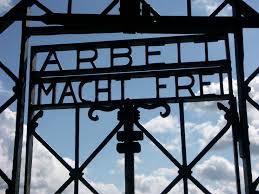The Holocaust: 70 years since the liberation of Auschwitz Birkenau.

27 January 2015 is the 70th anniversary of the liberation of Auschwitz-Birkenau, the Nazi concentration and Death camp in occupied Poland. The camp was a large industrialised centre for the exploitation and murder of the Jews of Europe. It was also a murder site for the Roma and Sinti (Gypsies) and prison and execution place for Polish prisoners and a slave labour camp for many groups and nationalities.
At its peak Birkenau was capable of murdering 10,000 people a day: well over 1.1 million Jewish men, women and children were killed there simply because they were Jewish. The Jewish communities were and are part of Europe, with a presence in some European countries that predates Christianity. The fact that Jews are not outsiders or ‘inherently different’ was a truth that was (and sometimes continues to be) bypassed for political ideology and economic convenience.
The Holocaust is a stain on Europe’s history and one that collectively humanity must bear and acknowledge if it is to progress forward and learn from the past. The Holocaust set the mantle of the depths of destruction that mankind was capable of; as Nazism utilised the forces of modernity to justify its intent and to carry out the killings in mechanised sites such as Birkenau.
The structured and organised method of identifying, collecting, exploiting (where possible) and killing that characterised the Holocaust, along with the scale of the murder, and the number of countries from which the Jewish communities were torn demands that subsequent generations are asked to remember and try to learn. The term genocide was created to try and describe the pointlessness and magnitude of what the Nazis did. An attempt to provide a word that could convey the meaning of the actions that the Nazis and their followers carried out, when anyone with humanity at their core would simply find the events and justifications of that time impossible and irrational.
The great tragedy is that in the 70 years that have passed since the Soviet army rolled into the camp and found those that were left, (any healthy camp inmates were being death marched westward so that the Nazis could really finish off the job of killing), murder based on ethnicity, religion, sexuality, and colour has continued both on a small and massive scale.
For the survivors of the Holocaust the popular refrain was ‘Never Again’, unfortunately that has not been the case. Genocide and mass murder, crimes against humanity and persecution of minorities has continued. Instead of being a wakeup call to the world the Holocaust is instead often used to relativize horror.
Today in 2015 the anniversary of the liberation is acknowledged as a universal day for remembering Genocide it is alas not a universal day for stopping or preventing it.
If the anniversary of 70 years is to be anything but another milestone of history then action must accompany memory. The people that have been killed should be remembered not just the act. Find out the names of some of the six million Jews, the 800,000 Rwandans and those others that have become statistics of prejudice rather real people for whom we should feel sorrow.
As historians we know that 70 years is a short period of time. Let us ensure that the Holocaust has an enduring legacy that prompts us to do as well as to reflect.
http://www.channel4.com/programmes/holocaust-night-will-fall/
http://www.history.org.uk/shop/product_3903.html
http://www.theholocaustexplained.org/
http://www.history.org.uk/resources/secondary_resource_5462_11.html
http://www.history.org.uk/resources/secondary_resource_6971_12.html

